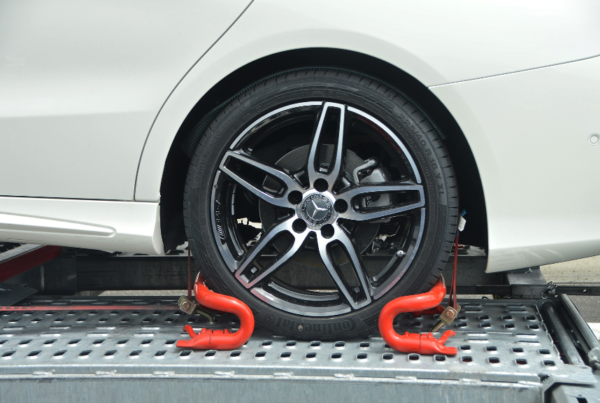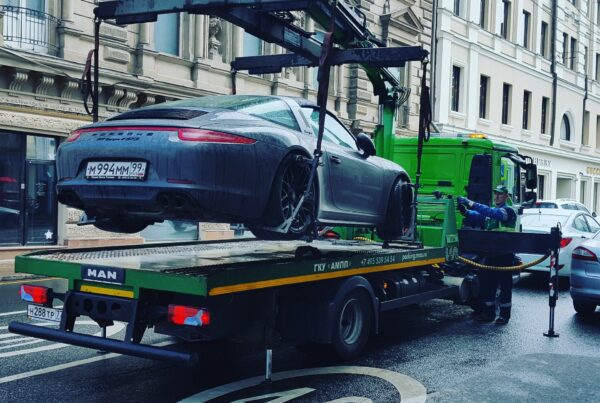 Section 715.07, Fla. Stat., was enacted by the Florida Legislature in 1976. Back then, a tow truck operator did not have a legal possessory interest over vehicles it towed on behalf of a property owner. This is because, in the State of Florida, a tow truck operator does not acquire a common-law lien over vehicles it tows pursuant to requests for non-consensual tows by property owners. Nonetheless, in 1976 and before, towing companies routinely withheld vehicles after non-consensual tows until the vehicle owners paid them a sum of money for the return of the vehicle. This unlawful practice resulted in the case of Murrell v. Trio Towing Serv., Inc., 294 So. 2d 331 (Fla. 3d DCA 1974).
Section 715.07, Fla. Stat., was enacted by the Florida Legislature in 1976. Back then, a tow truck operator did not have a legal possessory interest over vehicles it towed on behalf of a property owner. This is because, in the State of Florida, a tow truck operator does not acquire a common-law lien over vehicles it tows pursuant to requests for non-consensual tows by property owners. Nonetheless, in 1976 and before, towing companies routinely withheld vehicles after non-consensual tows until the vehicle owners paid them a sum of money for the return of the vehicle. This unlawful practice resulted in the case of Murrell v. Trio Towing Serv., Inc., 294 So. 2d 331 (Fla. 3d DCA 1974).
In Murrell, a vehicle that was parked in a no-parking zone was removed by a towing company on behalf of a property owner. The vehicle owner demanded his vehicle back from the towing company, who refused to return it unless the vehicle owner paid $15 for towing and storage. In response, the vehicle owner sued the towing company for conversion. After a jury awarded the vehicle owner more than $30,000 in compensatory and punitive damages, the towing company appealed.
The Third District Court of Appeal affirmed the trial court’s decision, holding that a towing company had no lien over a vehicle it towed without the consent of the vehicle owner and that withholding the vehicle in exchange for payment constituted conversion as a matter of law. Id. at 333. That decision caused towing companies to stop operating in the area and prompted the legislature to pass § 713.78, Fla. Stat., which granted towing companies a lien on vehicles, as long as they complied with certain requirements, outlined in § 715.07, Fla. Stat.
At the time the bill that would become § 715.07, Fla. Stat., was proposed, the legislature made its intent clear. As it was making its way through the legislative process, the bill went to the Judiciary Committee, which drafted a report analyzing the purpose of the statute and how it served that intended purpose. In its analysis of the consequences of the bill, the Judiciary Committee wrote:
The bill addresses the interests of all parties involved:
- For the property owner or lessor, criteria by which a vehicle can be towed away are outlined. In addition, the property owner or lessor is not liable for costs of removal, transportation or storage, or damages caused by removal, transportation, or storage.
- The towing company is given a lien for a reasonable towing and storage fee on any vehicle it removes. If the company properly removes the vehicle, it shall not be liable for damages connected with the towing or storing of the vehicle.
- If the owner so requests, he must be notified of the name and location of the person or company that removed his vehicle. If the area from which his car was towed is unattended, the property owner or lessor must leave a prominent notice of the name and location of the towing company. The vehicle owner will have recourse against the towing company in the event the vehicle is towed or stored improperly.
It is clear thus, from the legislative history that § 715.07, Fla. Stat., that it is intended to grant immunity in exchange for compliance, and liability for damages in exchange for non-compliance. It is also clear that the statute requires compliance from both property owners and towing companies, and that both are liable if the tow is rendered improper by non-compliance.
Despite the clear language of § 715.07, Fla. Stat., and the legislative history prior to it, several appellate decisions have recently undermined § 715.07, Fla. Stat., by holding that some aspects of it do not create a cause of action for consumers for damages experienced during tows. A statute designed to protect consumers from predatory towing practices since its inception is now being undermined. In subsequent articles, we will go over these recent decisions. Stay tuned.
For more information about our illegal towing practice contact a wrongful towing attorney at 305-570-2208 or email attorney Eduardo A. Maura at eduardo@ayalalawpa.com






